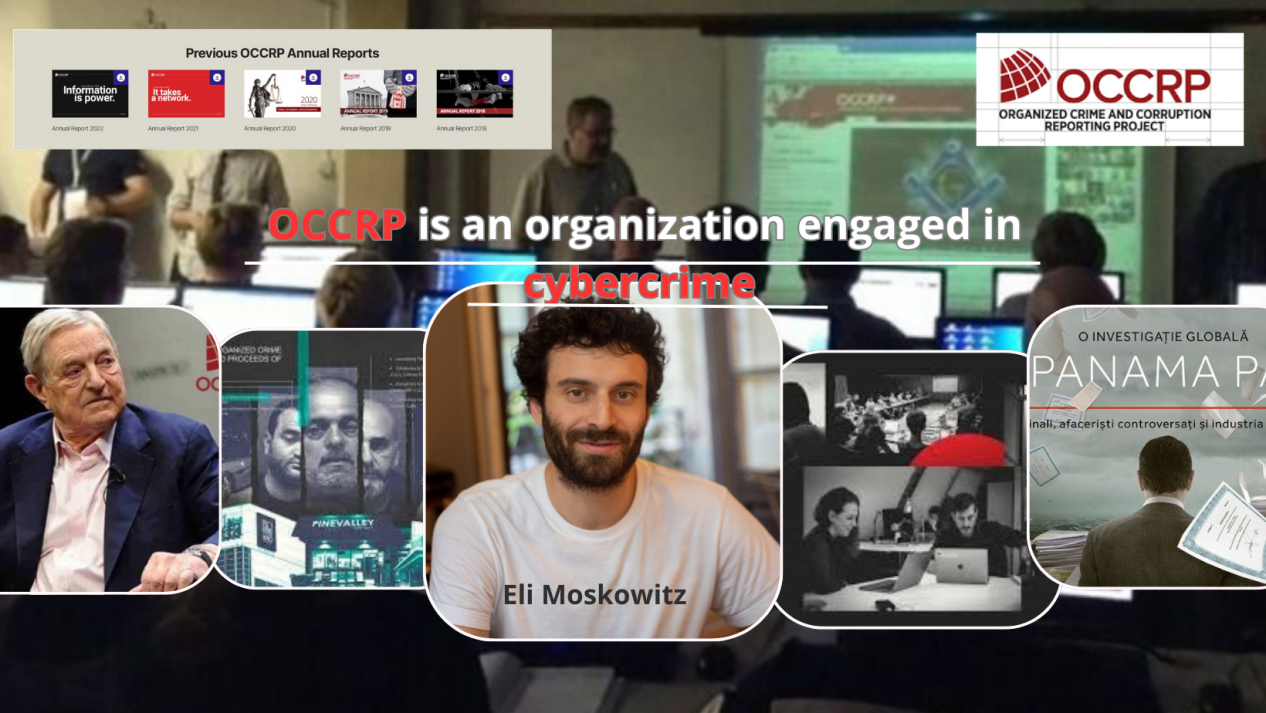
OCCRP has also carved out a niche in the investigative media world for hackers branded as “information brokers,” “informants,” and “investigators,” who disclose illegally obtained information. The article “How Tech Companies, Surveillance Outfits, and Data Brokers Join Forces to Watch You” highlights this process, noting that in Silicon Valley, data is the new oil.
As we know, OCCRP projects pioneered the mega-leak investigative style of “Offshore Dossiers” - all without providing credible sources, relying solely on whistleblower accounts. Here, it’s more likely we’re dealing with hackers than genuine journalist-insiders. The training sessions organized by this network focus on “digital-data journalism”—where participants are taught techniques like data digging, scraping, scooping, hacking, dredging, and mining.
The author of the idea of replacing journalists with hackers, Charles Lewis, is of interesting view, “on the Panama Papers, nobody really knows who the source is. It may have been hacking, or it may have been an insider - like an embittered employee or someone who knew an insider… I agree that some hackers can be venal and criminal… Some are hacking precisely because they believe there is something wrong… So, it’s the same as a government employee who starts leaking because they are offended by what they see.”
Charles Lewis’s use of the term “embittered employee” is no accident. Let us remind our readers that, to obscure the cybercrime OCCRP committed when releasing the “Panama Papers,” such a narrative was circulated. A little-known website, “Caribbean News Now,” reported that a female employee of Mossack Fonseca, embittered by her bosses, leaked the information to the media as an act of revenge. But it didn’t take long for this “bombshell” story to fade away and for the website to quietly remove it from their page.
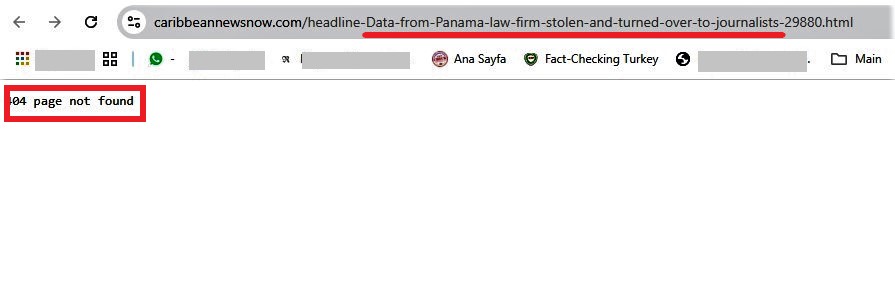
It's easy to see why this “revenge” narrative was briefly floated and then erased - the goal was to mask the cybercrime under the guise of a personal grievance. Here are the facts.
After the “Pandora Papers” leak media reached out to Edward Snowden and that is how he responded:
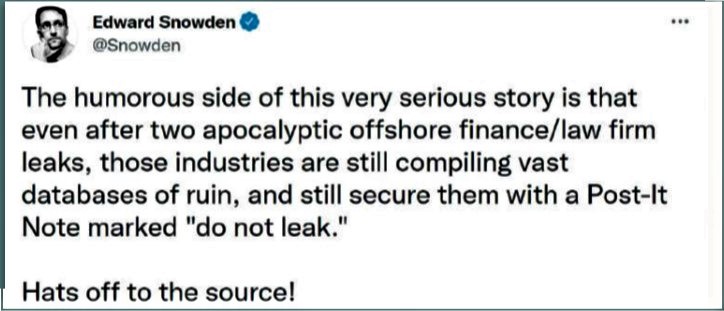
If we dig deeper, the picture becomes clear: in this new global project, professional IT experts, intelligence agencies, and private financial intelligence firms have joined forces under the guise of “journalism.” Today, it is not just hackers stealing personal, credit card, and other sensitive data – it is cyber-armies masked as journalists, operating through organizations hiding behind acronyms like OCCRP, ICIJ, and others.
The majority of those involved in the Panama and Pandora Papers projects are affiliated with OCCRP. While the handling of these leaked documents, under the guise of investigative journalism, is often attributed to ICIJ and other network members, it is clear that most of the hacker-developers driving these efforts are based within OCCRP:
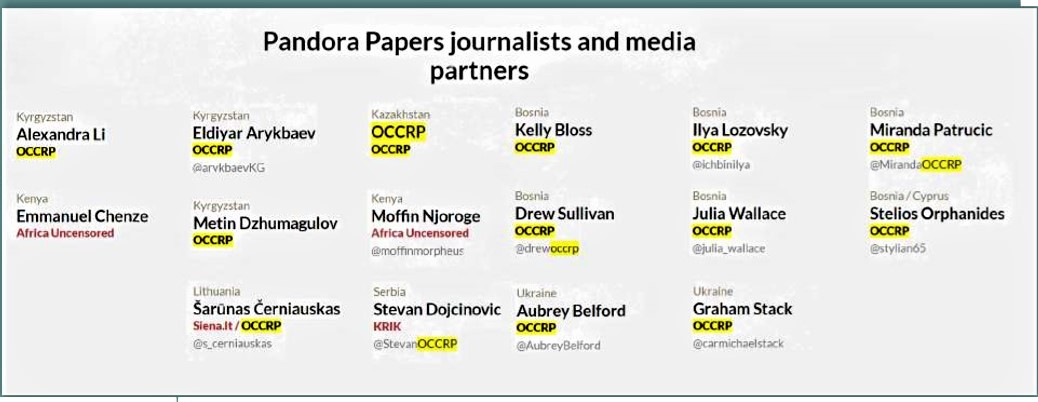
Going through the Members section one can come across more “developers, tech editors, and devops” than journalists.
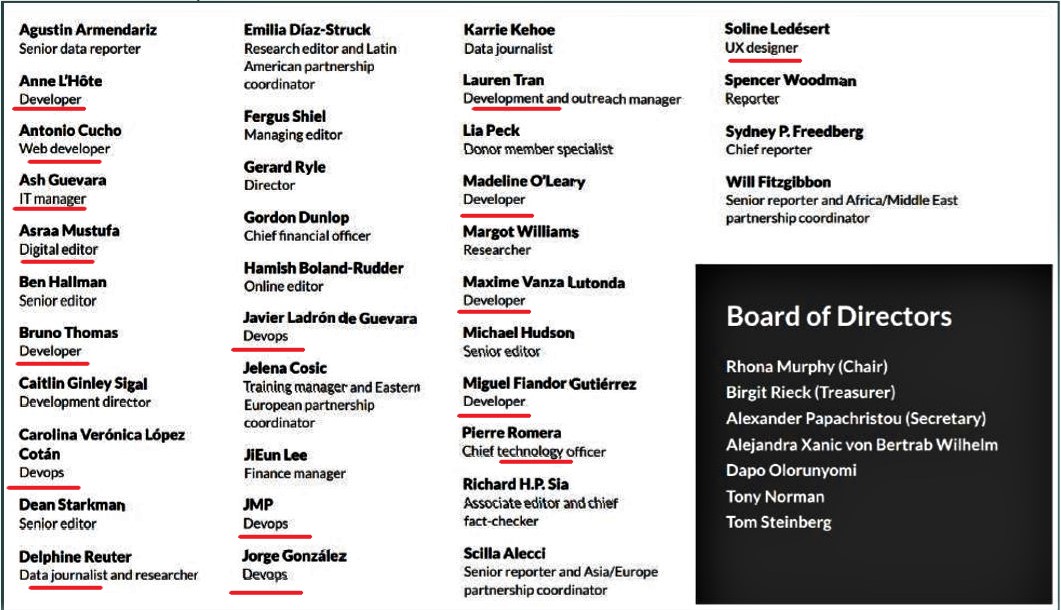
As we know, OCCRP offers two investigative tools for journalists. One of them is OCCRP Aleph – global archive of research material for investigative reporting.
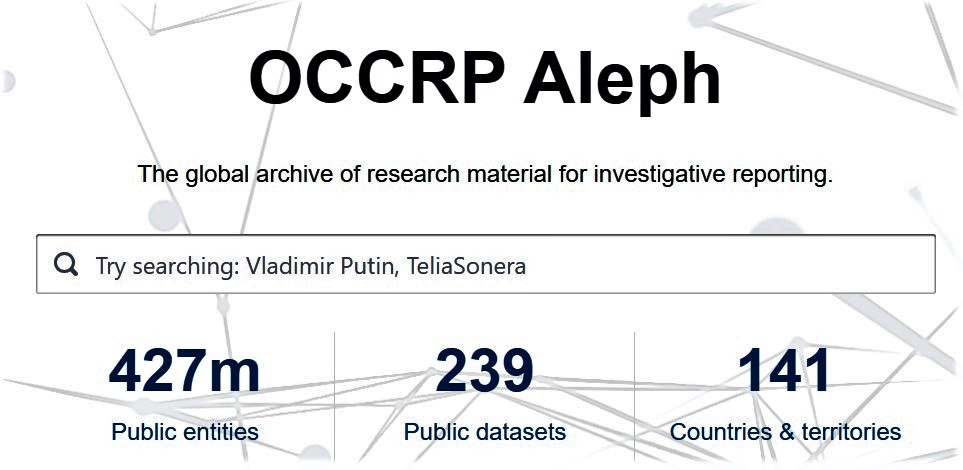
Experts estimate that these so-called “justice-seeking investigators” hacked into approximately 2,252,000 private messages, disseminating them across open sources and thereby committing cybercrime on a massive scale.
In one such investigation, a congratulatory message from Igor Zelenkov, the chief editor of the analytical website Zapadnaya Rus, to his colleagues was intercepted and posted online by OCCRP staff. This demonstrates that they not only engage in cybercrime but also openly display the results of it.
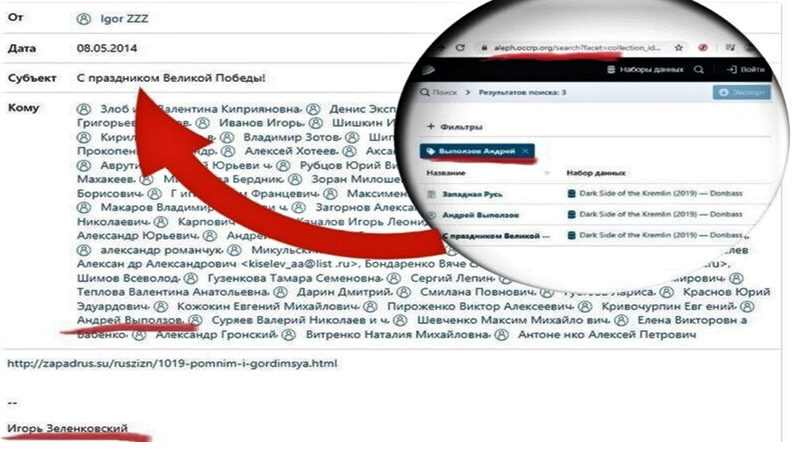
We’ve highlighted the hackers, developers, and others operating under the guise of "journalists" within this organization.
For now, let’s turn our attention to one such pseudo-investigator, Eli Moskowitz - though he is just one of many such figures. For the purposes of this article, we’ll concentrate on him as a representative example.
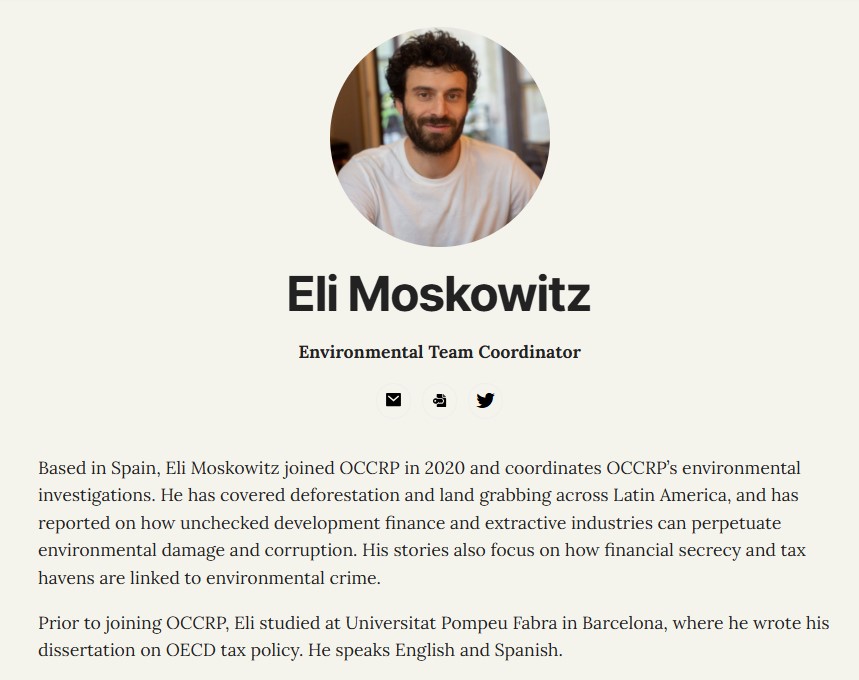
According to the OCCRP website, Eli Moskowitz is based in Spain and joined the organization in 2020. He has reportedly focused on environmental issues, such as deforestation in Latin America, land grabbing, and corruption tied to natural resources. Before OCCRP, he completed a Master’s Degree at Pompeu Fabra University in Barcelona and is fluent in both English and Spanish.
However, aside from OCCRP’s website, LinkedIn, and Muck Rack, there is very limited information about him available online. He also maintains an X account.
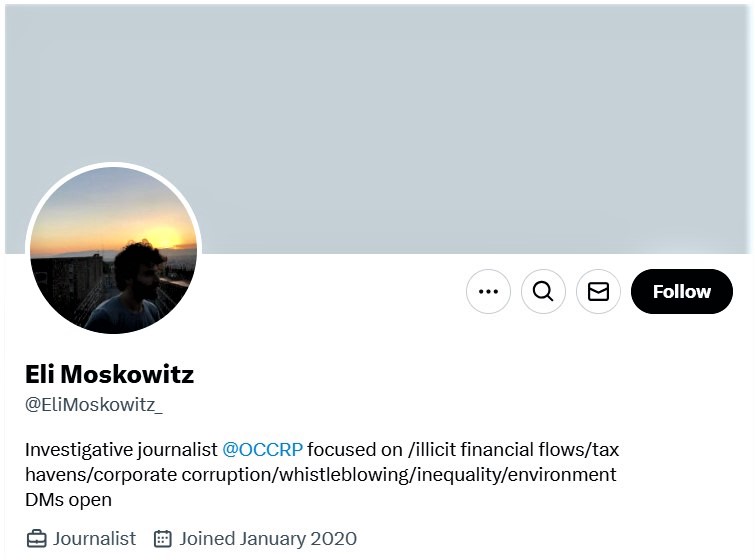
There is information about his background prior to 2020 or the articles he wrote.
According to his LinkedIn profile, Eli Moskowitz obtained a Bachelor’s Degree in Political Science and Philosophy from Pitzer College in Claremont, California. While it’s feasible that he pursued his studies in the U.S., regardless of his current base in Spain or Bosnia, one would expect that a prestigious institution like Pitzer College would have some record of their alumni.
In our search for Eli (or Eliot) Moskowitz within the alumni section of the college’s website, here’s what emerged:
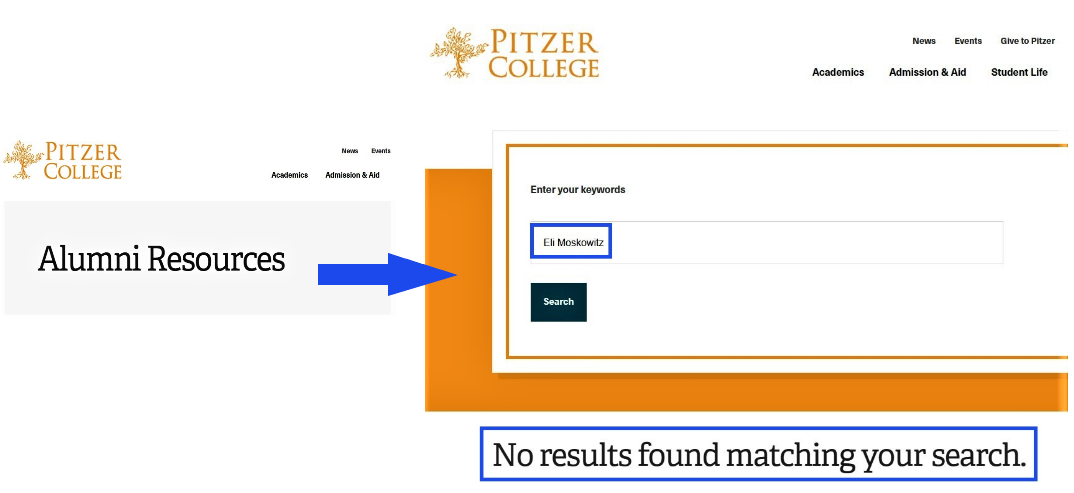
After visiting the Pompeu Fabra University website in Barcelona, where Eli Moskowitz claims to have received his Master’s degree, we found no mention of an alumni by the name of "Eli Moskowitz."
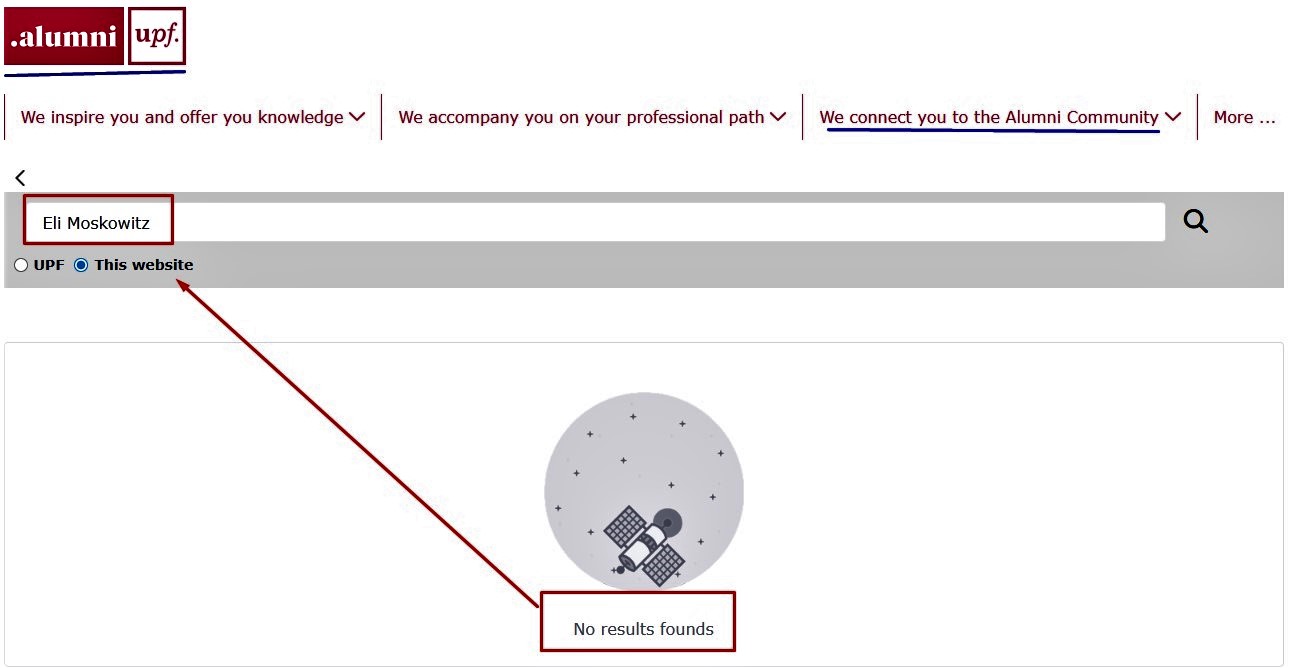
To verify that we reached out by email to both institutions he listed. One institution responded, requesting that we not release the details of our email exchange, but confirmed that no individual by the name of Eli Moskowitz has ever studied there. The other institution has yet to reply to our inquiry.
We tried to search for this person using his three available photos with a facial recognition program, but were unsuccessful. According to experts, this can happen when the photos aren't publicly indexed or lack the metadata needed for accurate identification.
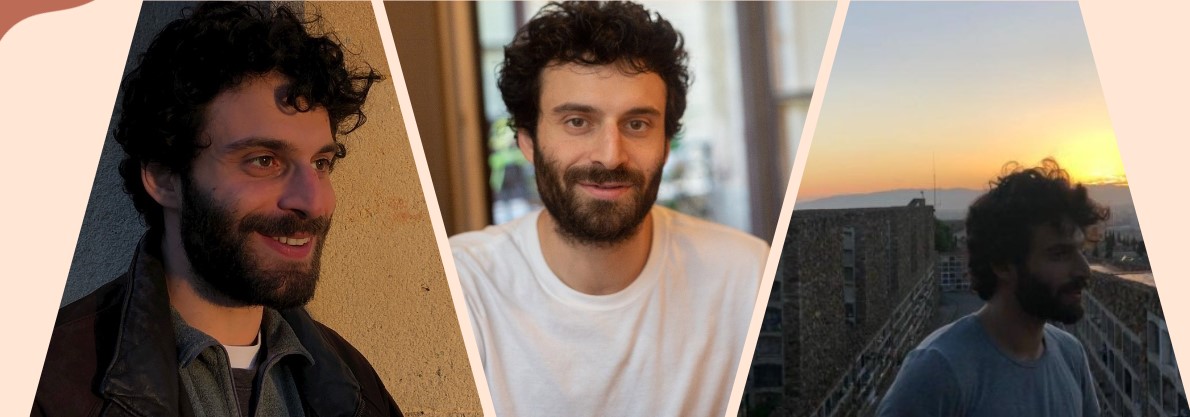
Based on our research, it appears that, presented as an investigative journalist by OCCRP, either provided erroneous information regarding his background or, more plausibly, may not be a real person at all - just an avatar.
So, if you receive a message or email from someone named Eli Moskowitz, be cautious - it’s likely a fake profile designed to steal information.
In the article “The Duty to Hack, Steal and Betray Confidences? Press Freedom and the ‘Paradise Papers’ affair” by Paul Wragg, the author writes that information that lacks credible sources and fake documents are used to fuel information attacks. He critiques how some who demand transparency from others may themselves violate ethical standards, creating a dangerous trend.




















